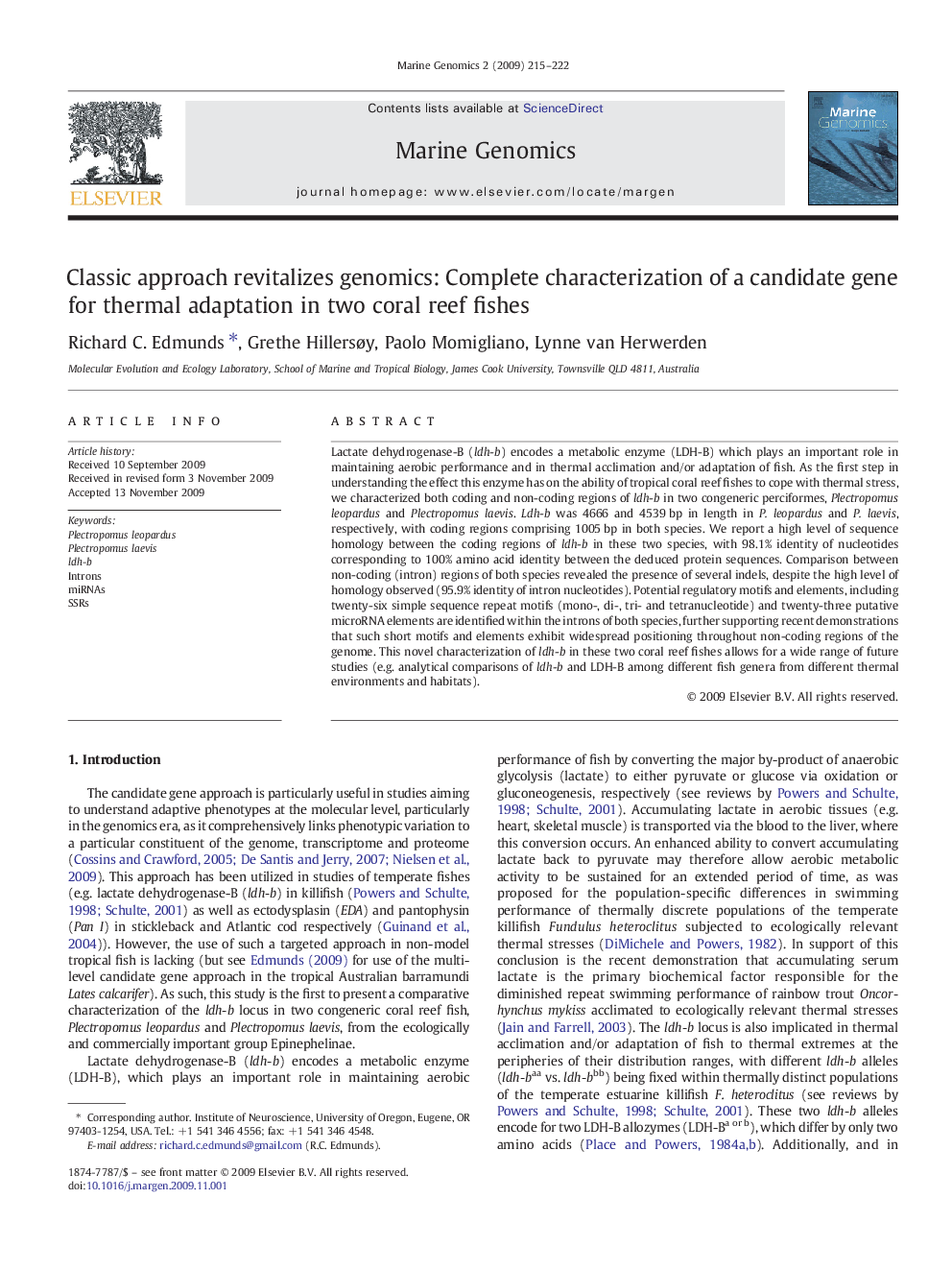| Article ID | Journal | Published Year | Pages | File Type |
|---|---|---|---|---|
| 2058302 | Marine Genomics | 2009 | 8 Pages |
Lactate dehydrogenase-B (ldh-b) encodes a metabolic enzyme (LDH-B) which plays an important role in maintaining aerobic performance and in thermal acclimation and/or adaptation of fish. As the first step in understanding the effect this enzyme has on the ability of tropical coral reef fishes to cope with thermal stress, we characterized both coding and non-coding regions of ldh-b in two congeneric perciformes, Plectropomus leopardus and Plectropomus laevis. Ldh-b was 4666 and 4539 bp in length in P. leopardus and P. laevis, respectively, with coding regions comprising 1005 bp in both species. We report a high level of sequence homology between the coding regions of ldh-b in these two species, with 98.1% identity of nucleotides corresponding to 100% amino acid identity between the deduced protein sequences. Comparison between non-coding (intron) regions of both species revealed the presence of several indels, despite the high level of homology observed (95.9% identity of intron nucleotides). Potential regulatory motifs and elements, including twenty-six simple sequence repeat motifs (mono-, di-, tri- and tetranucleotide) and twenty-three putative microRNA elements are identified within the introns of both species, further supporting recent demonstrations that such short motifs and elements exhibit widespread positioning throughout non-coding regions of the genome. This novel characterization of ldh-b in these two coral reef fishes allows for a wide range of future studies (e.g. analytical comparisons of ldh-b and LDH-B among different fish genera from different thermal environments and habitats).
